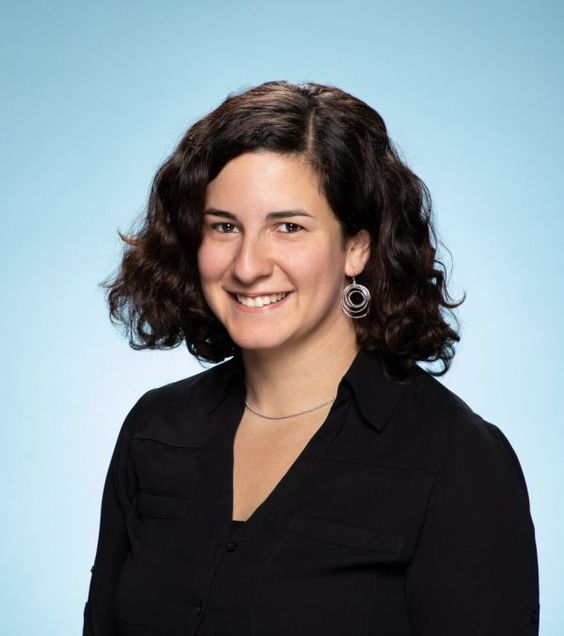Faculty Spotlight: Ayse K. Coskun (ECE, PEAC Lab)
In mid 2000s, uneasiness about the impact of “the many core era” spread among academia and industry. “Temperature-induced challenges were already a major concern for current multiprocessor systems-on-chips, and in many-core systems, resolving these challenges at design time would not be possible due to high cost and design complexity”, said Ayse Coskun, professor of Electrical and Computer Engineering, head of the Performance & Energy-Aware Computing (PEAC) Laboratory, and faculty affiliate of the Center of Information & Systems Engineering (CISE) at Boston University.

At the time, Professor Coskun was a PhD student at UC San Diego’s CSE Department as a member of the Systems Energy Efficiency Lab. With undergraduate degrees in microelectronics and physics, Coskun became intrigued with the idea of making system level decisions to workload and processor management to affect temperature profiles. Her ideas caught the attention of Sun Microsystems (now Oracle), who along with her UCSD advisor, invited her to explore these concepts at the Sun Microsystems’ System Dynamics, Characterization and Control group led by Dr. Kenny Gross in San Diego. The three years she spent at Sun became the basis of Coskun’s PhD thesis on “Efficient Thermal Management for Multiprocessor Systems.”
“My experience working at Sun Microsystems provided me tremendous flexibility and opportunity. It gave me the chance to see many different perspectives and access a myriad of computing components since Sun’s development was truly across the stack: hardware, software, operating systems,” said Professor Coskun.
Working at Sun also provided Professor Coskun with a window into how industry thinks and values research. “Industry often brings a different perspective to research problems and pushes for high-impact, innovative, yet applicable solutions that can be implemented in real-life systems. Evaluating the potential for reduction to practice and providing high-impact solutions to a broad community, which are often key elements in industry collaborations, are still significant parts of most of my projects.“
Professor Coskun’s research funding profile includes traditional sources for academia such as from NSF, but also a significant portion from industry. Since joining Boston University in September 2009, she has obtained external funding of nearly $3 million from federal funding agencies, including NSF and Sandia National Laboratories, as well as industry such as Oracle, VMware, AMD and IBM TJ Watson.
Her research contributions have been broadly recognized with numerous awards and grants, including an IEEE Council on EDA (CEDA) Ernest S. Kuh Early Career Award (2017), NSF CAREER Award in 2012, Gauss Award at the ISC High Performance Conference (2017), Best Paper Awards from the High Performance Embedded Computing Workshop (2011) and from VLSI-SoC Conference (2009), Dean’s Catalyst Awards from Boston University (2010 and 2017), and Hariri Institute Junior Faculty Fellow award (2011).
Professor Coskun’s research interests are broadly in design automation (EDA), computer architecture, and embedded systems, with a particular focus on improving energy efficiency, addressing thermal challenges, and using analytics for intelligent system management. Her current research projects involve modeling and management of systems with emerging chip integration technologies (such as 3D stacking or on-chip photonics), improving mobile computer efficiency, and designing intelligent analytics methods to improve efficiency, resilience, and security of data centers and HPC systems. She also has a recent project on integrating data centers into new power markets enabled by the smart grid, where she collaborates with CISE members Yannis Paschalidis and Michael Caramanis.
“I like keeping my feet on the ground as well as thinking about what might happen in the blue sky future,” said Professor Coskun. “In academia, we have the opportunity to do something that can be disruptive for future technology. At the same time, every now and then it is good to ask the question, who would care about this now, in 5 years, in 10 or 20 years? “
She shares this philosophy in her work with students. “It’s one thing to have a good idea, but another thing to put it into a prototype,” said Professor Coskun, who encourages her students to not go with the first hardware design or first set of code that comes to mind but to take a step back and think about constraints.”
At BU, Professor Coskun teaches classes in software engineering, embedded systems, and advanced computing systems and architecture. “While my students work across a range of diverse research topics, a common theme is that at one point or another, we do real system prototyping. It increases credibility. It makes a difference when we say we did this and it works.”
A passionate teacher and mentor who enjoys “working with her students, training them, and seeing them grow,” Professor Coskun encourages and facilitates diverse opportunities for her students, particularly in industry and both national and international labs.
“I have found external collaborations to be of high value to PhD students because such experiences provide students access to a larger set of experts and technologies. Likewise, national labs (such as Sandia) bring specific objectives and requirements that are distinct from academic labs. Diverse research experiences give students different perspectives, which is valuable in the rapidly changing world of computing.”
Professor Coskun is actively involved in her research community as a member of the executive committee of IEEE CEDA, an associate editor of IEEE Transactions on Computer Aided Design, and she has served as the Program Chair for Design Automation and Test in Europe (DATE) 2018, a top-tier EDA conference. She also served until recently as the CEDA liaison to IEEE Women in Engineering.
When not in the lab, Coskun enjoys listening to live music, traveling, and the outdoors.